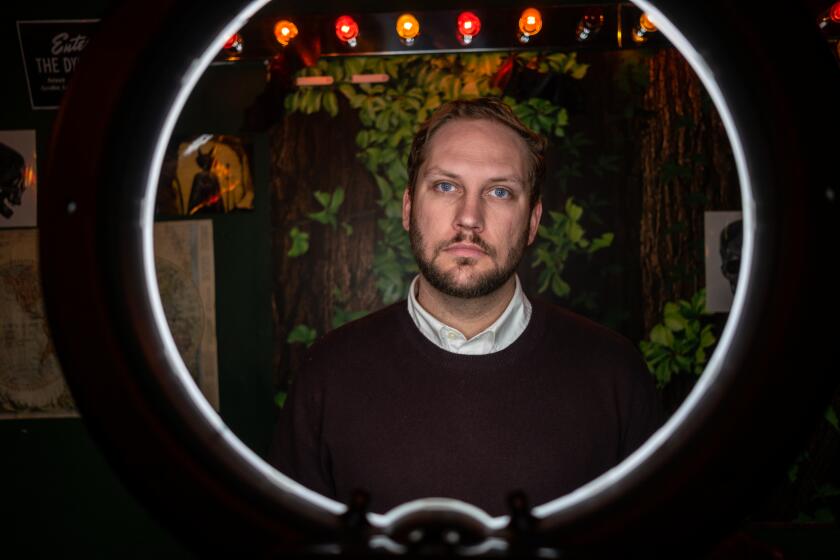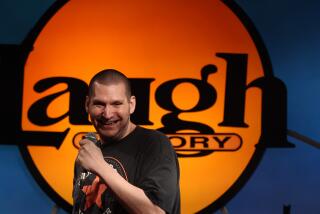How comedian Ryan Sickler battled a rare disorder and laughed in the face of death
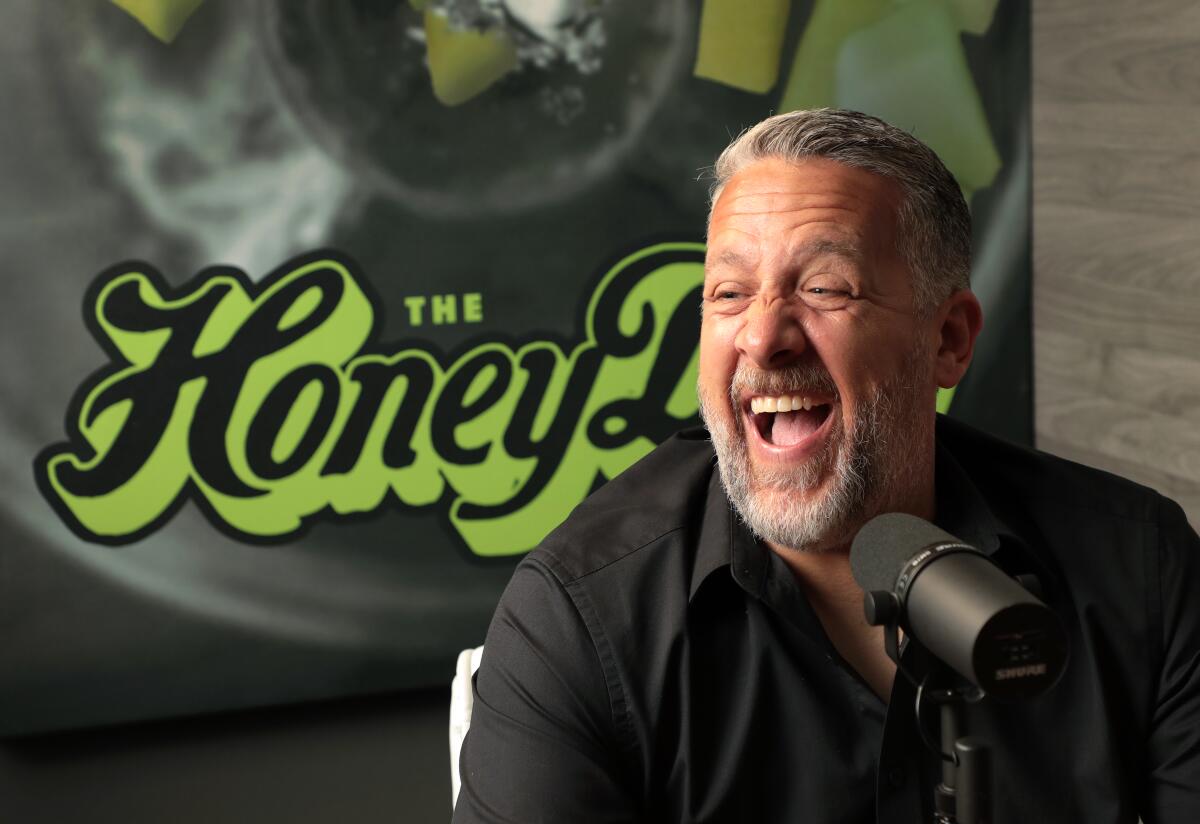
Baltimore native Ryan Sickler is a comic’s comic. His storytelling style is unparalleled, his high-pitched laugh is infectious, and his spirit draws you in like the smooth inhalation of a joint — which Sickler also knows a thing or two about. Father to a sweet (and hilarious) 8-year-old daughter Stella, host of the wildly successful “The HoneyDew Podcast,” a new special called “Lefty’s Son” released in April on You Tube, and on the road with his Live and Alive Tour, Sickler appears to have it all. And he does — including a rare blood-clotting disease called factor V Leiden that almost killed him.
Sickler started his stand-up career in 1993 performing at an open mic at a place called Winchester’s on Water Street in Baltimore. Because he would bring a lot of friends, they soon asked him to host.
“I was in college, so I had a bunch of people that would come and watch, and believe me, you didn’t have to be 21 to get a drink in that place,” Sickler recalls.
Though he’s considered a seasoned vet in comedy today, Sickler was definitely more of a wild card known for outlandish humor that wasn’t always a hit. “Very early on when I went on stage, I used fake buck teeth and did a hillbilly character,” Sickler says with a cringe. “I’ll tell you what, though, the next time I used those buck teeth they broke and I had nothing to go to. I was like, ‘End of prop comedy!’ That was like my second set ever, and I had no idea what was even funny or what to do.”
Fifty-dollar gigs don’t pay the rent and after the death of his grandmother, with whom he was living at the time, he became homeless and pressed pause on his comedy career in order to support himself. “I got a job at UPS. It took me awhile to save enough money, which was five grand and which I thought was a ton, and with that I moved to L.A. to pursue comedy,” he said. It was 1997 before Sickler did stand-up again.
“I hadn’t done comedy for ... years. I got into the Improv first and then I got into the Groundlings and did Level One there. There is a crazy waitlist to get up to the next level and I had loved the momentum I was building, so I was like, ‘I’m not gonna stop this and just wait for a year!’ I wasn’t really interested in improv, I just wanted to learn how to think with my mind differently. It helped me as a comedian onstage to break away from a structured set and handle whatever is going on offstage and then come back to it.”
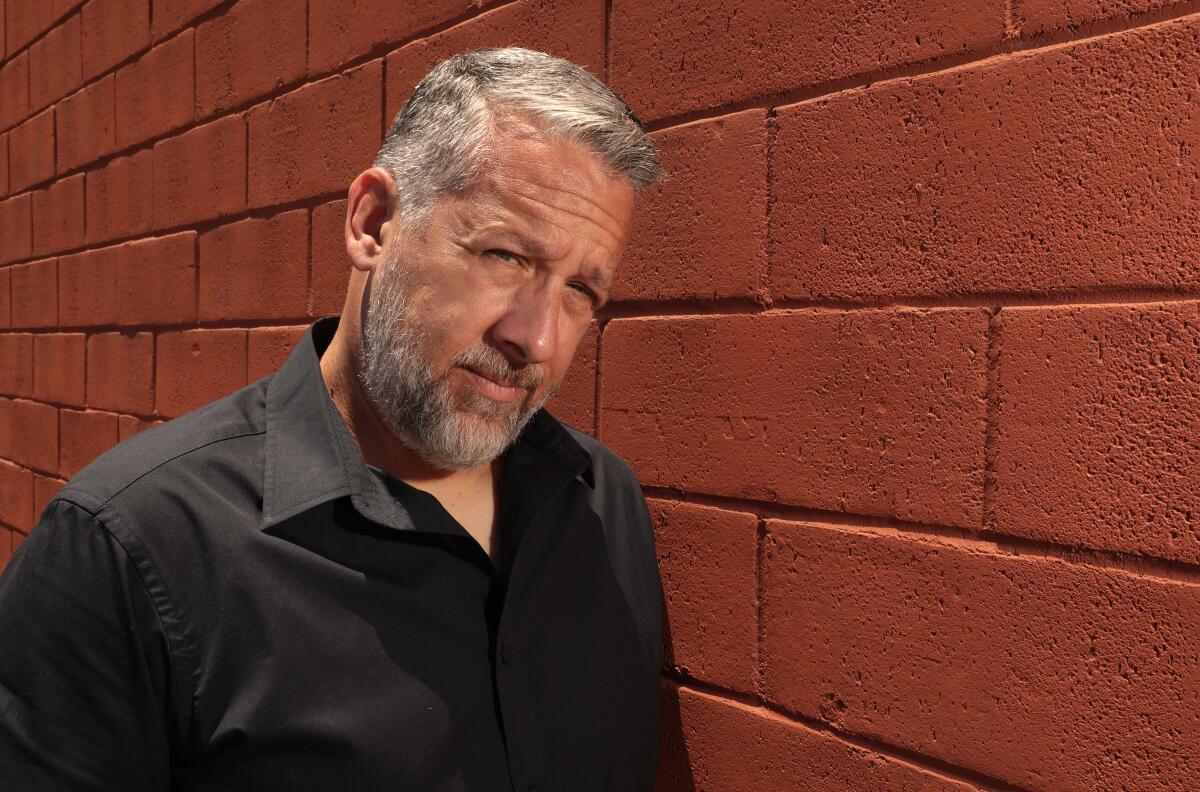
Eventually Sickler entered Hollywood behind the scenes in post-production as a runner. In between his daily tasks he would make it a point to pick up skills he needed to eventually write, produce and direct — skills that all came back to help him as a producer of his own podcast episodes and his recent stand-up special, “Lefty’s Son.”
“This is the second podcast studio I’m building right now, I know how to light, I know how to direct, I know how to do these things,” he said. “I produced, directed and did all the post-production for my own stand-up special because I know how to do it. I can’t fly the plane, but I can keep it going.”
Of all the roles he plays, Sickler says being a father to Stella makes him feel the most accomplished.
“She’s really smart and really funny. I keep a list of quotes she’s said, there are so many,” he said. “I took her to get a haircut when she was 3 and she said, ‘Dad, you’re damn funny!’ I was like, ‘Did she just say that?’ It made me feel so good. She really makes me laugh a lot.”
Ryan’s introduction to comedy goes back to his father. At age 10, he sneaked down the stairs and lay in the hallway behind his dad as he watched the 1981 Richard Pryor movie “Bustin’ Loose.” “I laughed so hard, I got caught. My dad was like, ‘Get in here and sit down! ... Finish watching this with me.’ That’s when comedy was born for me,” Sickler said. “Right there in that moment.”
His dad continued to introduce him to comedy greats — Eddie Murphy, George Carlin, Rodney Dangerfield. “It’s funny because he was never big on Bill Cosby. I swear to God, it’s like he knew before his time!” Sickler said.
In 1989, Sickler’s father died at 42, so of course when he hit 42 himself his own mortality wasn’t far from his mind. His dad suffered from blood clotting but when he died, it was attributed to a heart attack. Through years of technology and medicine, it turns out his heart attack might have been caused by factor V Leiden, a genetic mutation that can increase a person’s chances of developing abnormal blood clots, most commonly in the legs or lungs. The rare condition was passed on to Sickler but no one else in the family.
“It was first time I was ever headlining the Brea Improv for a weekend and I’m in the shower getting ready and suddenly I fall to my knees,” Sickler said. “I’ve never felt pain like this in my life. I look down and both my legs are like clotting. I got rushed to hospital and it ended up being kidney stones, but then they put me on bed rest, which made my legs clot.” Even his doctor had never seen anything like it. They sent Sickler to an oncologist who told him they don’t usually see two legs clot that way and that he might have leukemia before his issues were found to be a result of factor V Leiden. “Laying still makes me a ticking time bomb,” Sickler said. After learning about factor V Leiden, his family and surgeons came to the realization that his father likely didn’t die of a heart attack — the disorder is what killed him.
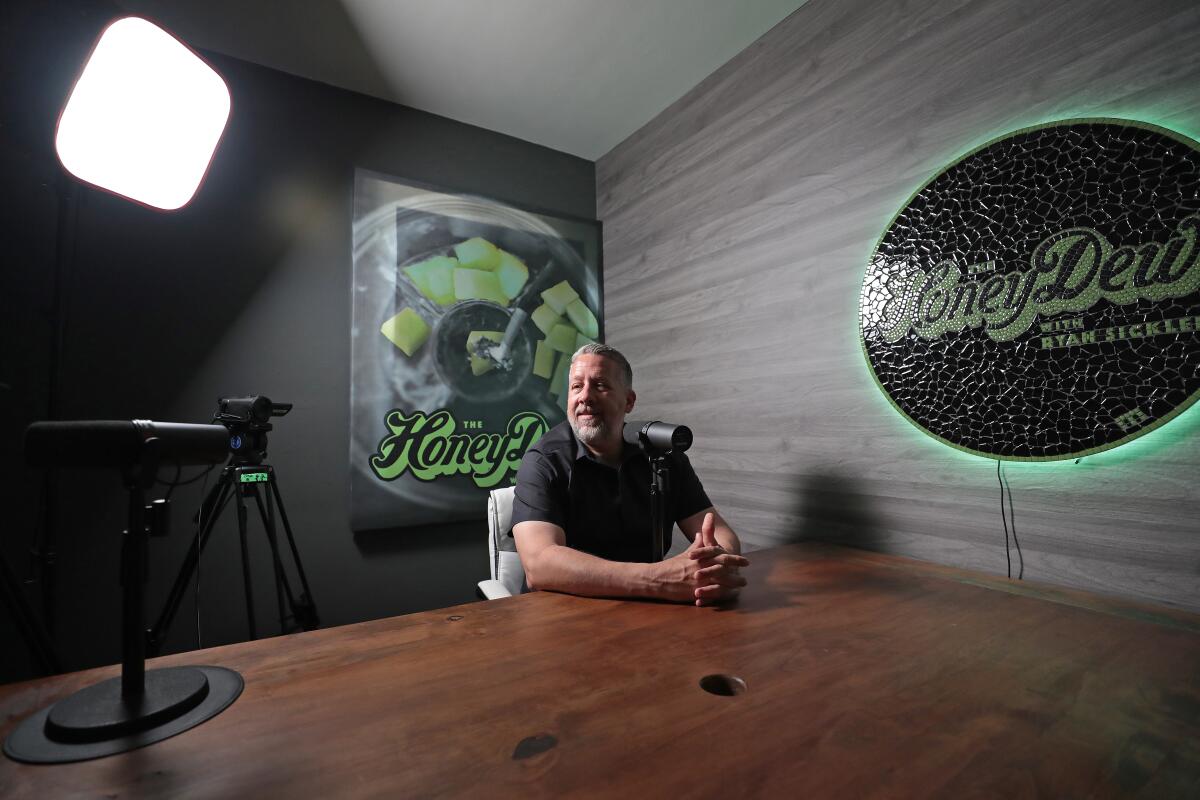
In 2023, Sickler checked in for a three-hour outpatient surgery to fix his nagging backache. He went home to rest up, but after the procedure something wasn’t right. “It wasn’t healing properly, so the surgeon is telling me to send pictures and go to bed rest. You’re supposed to get up, move around a little bit so the blood flows, but I was possibly bleeding back there, so he said the bed rest could help heal it over a couple days,” Sickler said. The weekend passed and on Monday, Sickler went back to the hospital to be reexamined and reopened so his doctors could fix the problem. “After it’s fixed, they made me lay there and they put me in what I call ‘gen pop,’” Sickler recounts.
“I laid there in a room where other patients were there for three hours, and I’ve been there for three days. Which turns into five days, seven days, eight and nine days,” Sickler said. “I’m telling anyone who will listen that I’ve got this blood disease and it’s in all my pre-op paperwork. I know I need to get up, so I’m worried about the clotting because it happened before. So now I’m lying there with these calf pumps they gave me that squeeze and release to keep blood flow going.”
Keeping the blood flowing sounds great in theory, but when the time finally came to pass his “going home test,” Sickler collapsed. He was clotting. “The nurse calls the doctor and he takes my blood pressure and says, ‘Tell me what you feel.’ I felt like three elephants were sitting on my chest. He said my blood pressure was really low and then asked, ‘Are you having heart attack symptoms?’ I was like, oh, my God. Now I am! Pain in my left jaw going down my left arm. He said, ‘You might be having a heart attack and clotting.’ If I don’t wake up, those are the last words I hear before I die. I remember nothing after that. I woke up and there was a little nurse standing over me and I said, ‘Am I still going home today?’”
Needless to say, his discharge was canceled. After CT scans and MRIs, Sickler was told that he had massive pulmonary embolisms. He didn’t have a heart attack. However, the embolisms made his heart swell. And not in a sweet cartoon type way — he was fortunate to be alive.
“I had four surgeons tell me that I was very lucky to be alive and that someone was watching over me in there,” Sickler said. He was put on an IV drip of blood thinners and told to make calls to his family and friends. “They tell me that if it doesn’t get better, they’re gonna take this tube the size of my pinky and put it in my groin to go up into my lungs and suck the clots out. But they don’t want to do that because of the factor V, so I could brain bleed or be a vegetable. I was like, ‘OK, we’re not doing that,’” he said. “Basically, they were like, ‘Forget your back, we need to save your life.‘”
Though Sickler says he was told repeatedly that he’d be “going home tomorrow,” his blood work told a different story. He was seen by a spinal surgeon, a hematologist, oncologist and pulmonologist, all of whom were required to sign off before he could leave the hospital. “Pretty sure I became a bit of a case study for them,” Sickler said.
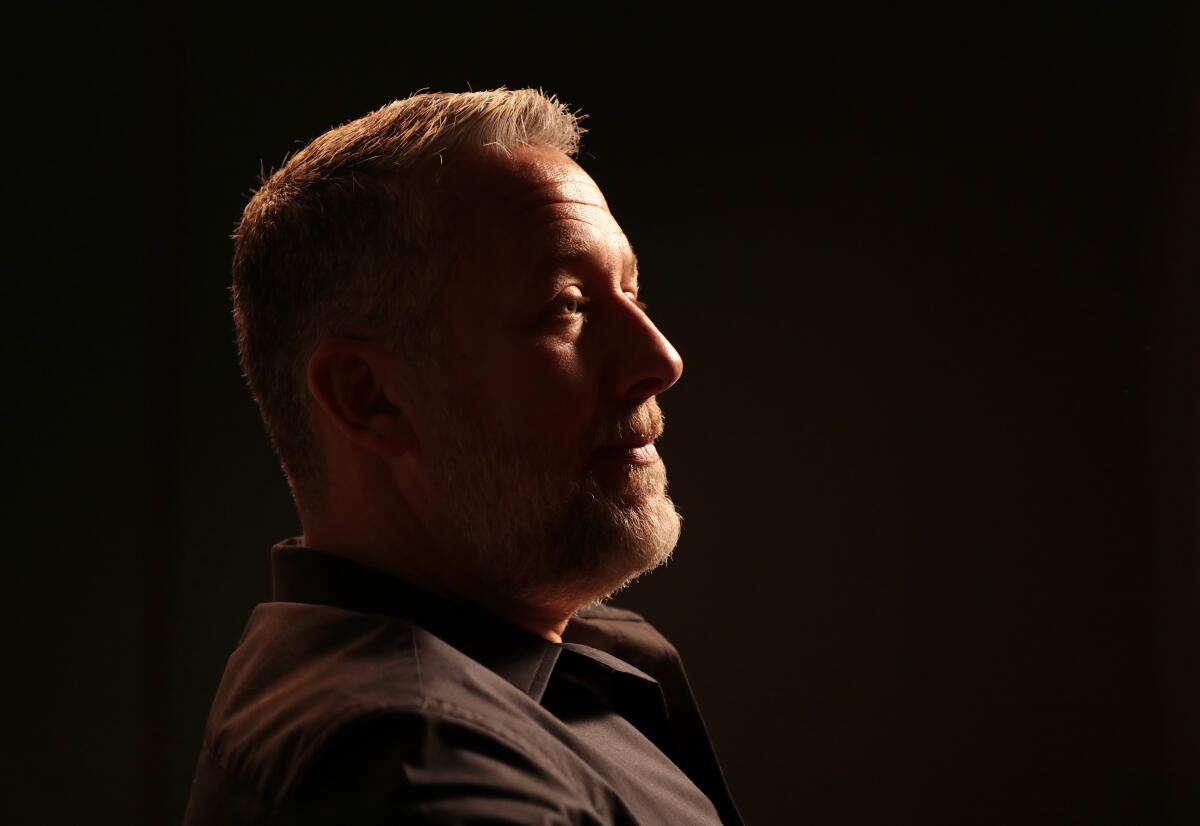
The comedian spent the month of January on his back, the angle of his hospital bed never set higher than 30 degrees. When his tests were good, finally, he was able to leave the hospital. “I want to give proper credit to my stepson Derek,” said Sickler. “He not only took me to the hospital, but he took me to doctor appointments and he was there for me big time. He took me to the original surgery as well. Honest to God, this kid was my rock. My good friend Mike Duffy drove me home that night, and Dan Van Kirk is another person that was very instrumental and there for me during that time with me as well.”
Sickler didn’t just have the support of his friends and family, he had the support of his fans. “I’m not kidding you when I say I have the absolute best fans and they’re actually good people. It meant the world to me,” the comedian said. “I’m not crazy public, I tend to go the opposite way, but I put a little bit out there to let people know something wasn’t right. I didn’t really know where any of it was going anyway, but I didn’t feel like social media was the place to die or almost die. I just felt I needed to mention a small something.”
His body is now on the mend and now Sickler’s back on the comedy grind. He wrote, directed, and produced his new special, “Lefty’s Son,” which was shot at Los Angeles’ Dynasty Typewriter theater last December and released on YouTube April 5. Every Tuesday he puts out a new episode of his wildly successful “The HoneyDew Podcast.” Considering all that he’s lived through recently, he tries not to waste a single day of productivity.
“When tragedy happens in our lives, I’ve always dealt with it with laughter,” says Sickler. “I have my private moments where I’ll obviously break down and lose my s—, but most of the time, it’s me trying to make other people feel better about the horrible situation I’m in. That’s what comedy is really all about. ... It’s hard for me to let myself relax and sort of enjoy the moment and cherish it. I do feel like I’ve been doing better at that after almost dying. I love life, I really do.”
More to Read
The biggest entertainment stories
Get our big stories about Hollywood, film, television, music, arts, culture and more right in your inbox as soon as they publish.
You may occasionally receive promotional content from the Los Angeles Times.
